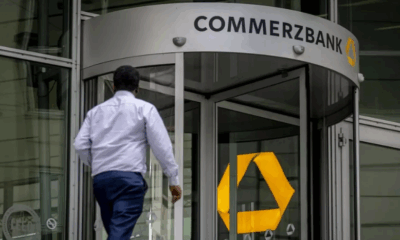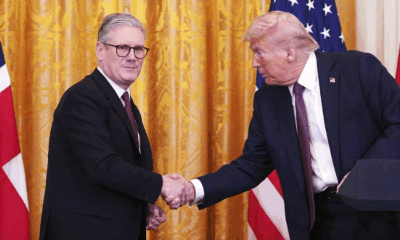Business
Global Stocks Plunge as Trump Defends Tariff Stance Amid Escalating Trade War
Global markets reeled Monday as escalating trade tensions between the United States and its key partners deepened investor anxiety, with U.S. President Donald Trump reaffirming his commitment to eliminating trade deficits—particularly with China—despite mounting financial turmoil.
Speaking aboard Air Force One over the weekend, Trump denied any intention to stoke market chaos but reiterated that fixing the U.S. trade imbalance with China remains a top priority. “I don’t want anything to go down, but sometimes you have to take medicine to fix something,” he said, adding that the U.S. loses “hundreds of billions of dollars a year” to China and that no deal would be made until the deficit is addressed.
His comments followed a dramatic escalation in the global trade war last week, when the White House announced unexpectedly high reciprocal tariffs. In retaliation, China imposed 34% tariffs on all U.S. imports, marking one of the most severe responses in the ongoing standoff.
Trump also took aim at Europe, demanding not just annual payments but also financial reparations for past trade imbalances. “We put a big tariff on Europe. They are coming to the table, they want to talk—but there’s no talk unless they pay us a lot of money on a yearly basis,” Trump said.
The intensifying rhetoric sent shockwaves through global equity markets during Monday’s Asian session. Hong Kong’s Hang Seng Index opened nearly 10% lower following a holiday break, erasing most of its 2025 gains. Earlier optimism around Beijing’s stimulus pledges and AI-related growth had pushed the index up 24% year-to-date before tumbling post-tariff announcement. As of Monday, the Hang Seng was up just 3.2% for the year.
Japan’s Nikkei 225 fell 6% in early trading, hitting an 18-month low and entering bear market territory after falling over 20% from January highs. South Korea’s Kospi shed more than 4%, and Australia’s ASX 200 dropped nearly 4% before partially recovering.
“There could be big rallies this week on positive headlines. But there won’t be a sustained recovery until Trump signals he won’t escalate tariffs further,” said Kyle Rodda, senior market analyst at Capital.com.
U.S. stock futures also extended losses, with S&P 500 futures down 3.5%, Nasdaq off 4.5%, and Dow futures slipping 2.9% by early morning European time. The CBOE Volatility Index (VIX), often referred to as Wall Street’s “fear gauge,” surged 51% last week to above 45—a level not seen since the 2020 pandemic crash.
European markets braced for impact, with major indices already reeling from last week’s declines. The Euro Stoxx 600 fell 7.4%, Germany’s DAX dropped 6.9%, and France’s CAC 40 slipped 7.1%.
“This morning’s note is going to be a depressing one,” wrote Michael Brown, senior analyst at Pepperstone London. “I’m quickly running out of adjectives to describe how gloomy sentiment is becoming, and how grim the economic outlook now appears.”
Business
Commerzbank Delivers Strongest Quarterly Results in Over a Decade Amid Takeover Tensions
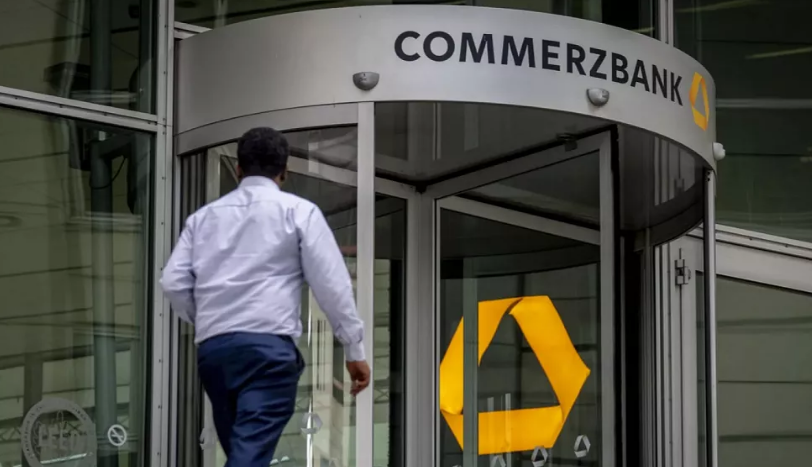
Germany’s Commerzbank has reported its highest quarterly profit since 2011, beating market expectations and reinforcing its position as it fends off takeover efforts by Italy’s UniCredit.
For the first quarter of 2025, Commerzbank posted a 12% increase in net income, reaching €834 million, defying earlier forecasts of a decline. Revenues also climbed 12% year-on-year to €3.1 billion, while net commission income rose by 6% to €1 billion, bolstered by a robust performance in its securities business. However, net interest income declined slightly to €2.07 billion amid falling interest rates.
Chief Executive Bettina Orlopp hailed the performance as a sign of strength despite challenging economic conditions. “We achieved the highest quarterly profit since 2011, demonstrating that we can grow even in economically challenging times,” she said. “We are progressing with the implementation of our strategy ‘Momentum’. We plan to return more capital to our shareholders in the coming years.”
The bank recently concluded a €1 billion share buyback programme launched in November 2024 and plans to propose a dividend of €0.65 per share at its Annual General Meeting on May 15.
These positive results come at a critical juncture, as Commerzbank seeks to resist UniCredit’s takeover push. The Italian lender has increased its stake to 29.9%, just below the 30% threshold that would trigger a mandatory public offer. In response, Commerzbank has launched cost-cutting initiatives, including plans to reduce its workforce by 10% — a move currently under negotiation with employee representatives.
Union-led protests against a potential takeover are also scheduled to take place ahead of the AGM, highlighting growing internal resistance.
Despite the corporate unrest, the bank reaffirmed its 2025 targets, projecting a full-year net profit of approximately €2.4 billion after restructuring expenses. €40 million has already been set aside this quarter for early retirement schemes as part of the broader cost-reduction plan.
The lender also noted progress in its efforts to reduce reliance on interest income as rates fall, with return on tangible equity rising to 11.1% from 10.5% in the same quarter last year.
CFO Carsten Schmitt confirmed the bank is on course to meet its full-year equity return target of around 9.6%. “We are reducing our dependency on net interest income. We confirm our outlook for 2025,” he said.
As pressure mounts from both markets and potential acquirers, Commerzbank’s performance could prove pivotal in maintaining its independence.
Business
UK’s Highest and Lowest Paying Jobs Revealed in Latest ONS Report
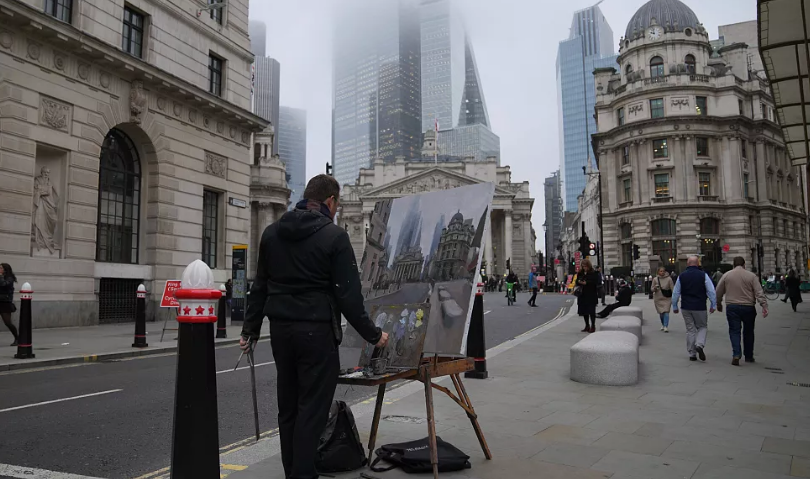
The UK’s salary landscape continues to evolve, with new figures from the Office for National Statistics (ONS) revealing a significant divide between the highest and lowest paying professions. The annual data, based on April 2024 earnings, highlights growing income disparities and changing trends across sectors.
According to the ONS, the median gross annual earnings for full-time employees reached £37,430 in April 2024 — a 6.9% increase from the previous year. But while average pay is rising, the gap between the top and bottom earners remains stark.
Leadership, Tech, and Transport Dominate Top Salaries
Unsurprisingly, executive and leadership roles lead the list of the UK’s highest paying jobs. Chief executives and senior officials top the chart with a median annual salary of £88,056. Close behind are directors in marketing, sales, and advertising (£87,309), and IT directors (£86,033). These three are the only professions with salaries surpassing €100,000 annually.
Notably, aircraft pilots and air traffic controllers rank fourth (£80,414), followed by specialist medical practitioners (£74,979) and headteachers (£71,064). Several transport-related roles also feature prominently — including train and tram drivers, who earn £63,958, outpacing even judges and barristers (£59,423).
Tech remains a stronghold for high pay, with various IT roles — such as systems designers, software developers, and business analysts — earning well above the national median. Other well-compensated fields include engineering, statistics, and emergency services. Paramedics, for instance, earn an average of £54,638, while aerospace and electronics engineers earn just over £52,000.
The 40th highest-paying job still earns £50,853, illustrating the significant financial gap even within the top-earning group.
Hospitality, Childcare, and Support Roles Trail Behind
At the opposite end of the spectrum, school midday supervisors and crossing patrol staff are the lowest paid in the UK, earning £19,860 — just over half the national median. Coffee shop workers follow closely at £19,990.
Hospitality and catering roles dominate the bottom 40, with bar staff, waiters, cooks, and kitchen assistants all earning between £20,000 and £23,000. Despite their societal importance, early years and childcare professionals are also among the lowest paid. Childminders earn around £20,189, while early education assistants make under £23,000 annually.
Manual and cleaning roles, such as launderers, florists, and sewing machinists, also rank low. Even some healthcare support roles, including dental nurses and pharmacy assistants, fall below the national median despite requiring training or certification.
As the UK’s job market evolves, this data underscores the persistent inequality in pay across sectors. While digital and technical roles continue to gain value, critical support and care professions lag behind, raising important questions about how society rewards its workforce.
Business
UK and US Poised to Announce New Trade Deal Amid Tariff Tensions
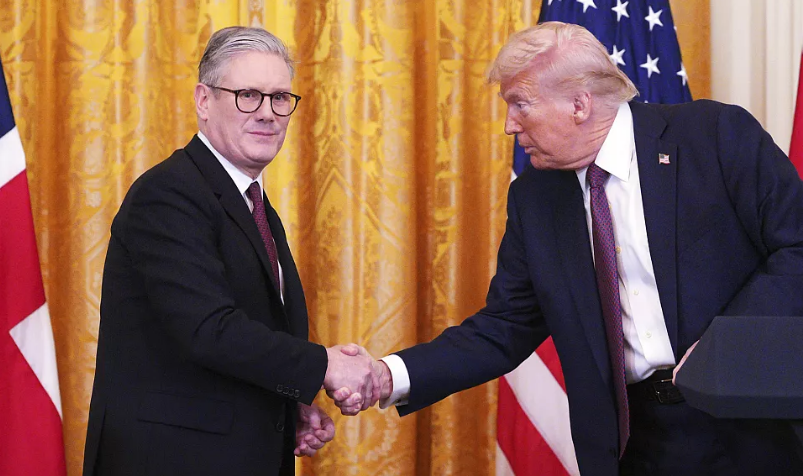
The United Kingdom and the United States are expected to announce a new trade agreement later today, following comments from U.S. President Donald Trump that a deal with a “highly respected” country was imminent. Downing Street confirmed Thursday morning that a formal statement would be issued, highlighting deepening economic ties between the two transatlantic allies.
According to a spokesperson for Prime Minister Keir Starmer, the pending agreement reflects Britain’s commitment to acting in the national interest. “The prime minister will always act in Britain’s national interest – for workers, for business, for families,” the spokesperson said. “The United States is an indispensable ally for both our economic and national security. Talks on a deal between our countries have been continuing at pace and the prime minister will update later today.”
The anticipated deal could mark the first formal trade agreement reached by the U.S. since “Liberation Day” in April, when President Trump introduced a new wave of tariffs targeting foreign imports. The UK emerged relatively unscathed from those tariffs, with its exports facing a 10% baseline duty—far less than the 20% rate imposed on EU goods or the 30%-plus levies on imports from several Asian countries.
However, key British exports such as cars and steel are still subject to a 25% tariff under current U.S. rules. Trade experts anticipate that the forthcoming agreement will focus on easing restrictions in these sectors, though it is unlikely to extend to a full-scale free trade arrangement at this stage.
British negotiators have been in Washington this week in a final push to secure more favorable terms, amid growing concern over potential future levies. President Trump’s recent proposal to tax foreign films has also raised alarms in the UK, where the film industry is a major source of export revenue.
The UK is also broadening its global trade strategy. On Tuesday, Prime Minister Starmer announced a long-awaited trade deal with India, easing the movement of professionals and reducing tariffs on British gin and whisky. Meanwhile, preparations are underway for a UK-EU summit on May 19, where discussions are expected to include a post-Brexit youth mobility agreement.
The U.S., for its part, is exploring deals with several nations including Japan, Israel, and India, though negotiations with China remain strained. President Trump has signaled that he will not lower tariffs on Chinese imports—currently at 145%—without significant concessions from Beijing.
As transatlantic talks reach their conclusion, today’s announcement could mark a significant milestone in reshaping post-Brexit trade relations between London and Washington.
-

 Business12 months ago
Business12 months agoSaudi Arabia’s Model for Sustainable Aviation Practices
-

 Business12 months ago
Business12 months agoRecent Developments in Small Business Taxes
-

 Politics12 months ago
Politics12 months agoWho was Ebrahim Raisi and his status in Iranian Politics?
-

 Business10 months ago
Business10 months agoCarrectly: Revolutionizing Car Care in Chicago
-

 Business10 months ago
Business10 months agoSaudi Arabia: Foreign Direct Investment Rises by 5.6% in Q1
-

 Technology12 months ago
Technology12 months agoComparing Apple Vision Pro and Meta Quest 3
-

 Politics12 months ago
Politics12 months agoIndonesia and Malaysia Call for Israel’s Compliance with ICJ Ruling on Gaza Offensive
-

 Technology12 months ago
Technology12 months agoRecent Developments in AI Ethics in America

